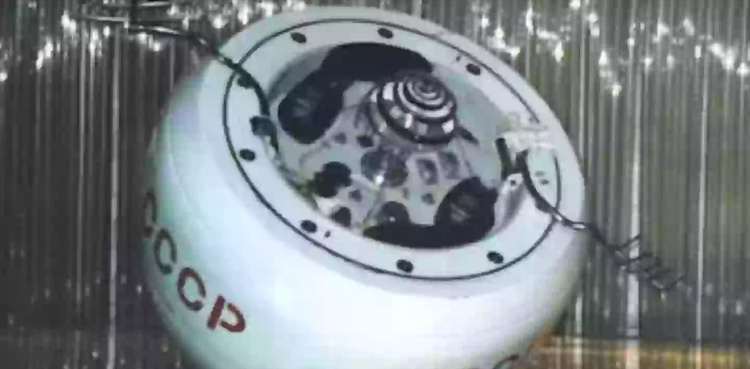A Soviet-era spacecraft called Cosmos 482, which was launched in 1972 to land on Venus, has gone viral after finally returning to Earth following more than 50 years in orbit.
The viral moment occurred early Saturday morning when the craft, which never made it to Venus, crash-landed in the Indian Ocean, west of Jakarta, Indonesia.
Originally part of the Soviet Union’s Venus exploration programme, the spacecraft became a viral topic among space experts and the public alike.
It was designed to survive extreme conditions on Venus, meaning it was tough enough to remain largely intact during its reentry into Earth’s atmosphere.
Roscosmos, Russia’s space agency, confirmed that Cosmos 482 entered the atmosphere at 9:24 a.m. Moscow time.
Read More: Pakistani astronaut to join China Space Station
The European Space Agency, which had been tracking the object, also confirmed the reentry around 3:32 a.m. UK time. The unusual event quickly went viral on social media and among astronomy communities.
The capsule, about 1 metre wide, was stuck in Earth’s orbit for decades after a failed launch. Its slow descent was caused by Earth’s thin atmospheric drag.
Experts have long been watching Cosmos 482’s orbit, knowing it would eventually fall back to Earth. Its final descent turned into a viral headline around the world.
Though it posed little danger, Cosmos 482 gained attention due to its unique history and construction.
It was part of the Venera programme, a series of Soviet missions aimed at exploring Venus during the Cold War space race.
Even though it splashed into the ocean, experts warned that if it had landed on land, people should have kept their distance and contacted authorities, as the spacecraft might still contain harmful materials. As per international law, the object still belongs to Russia.
Cosmos 482’s return was more than just a viral spectacle — it reminded the world that space junk from decades ago can still have an impact.
With more satellites being launched every year, managing space debris is becoming increasingly important.


Leave a Comment